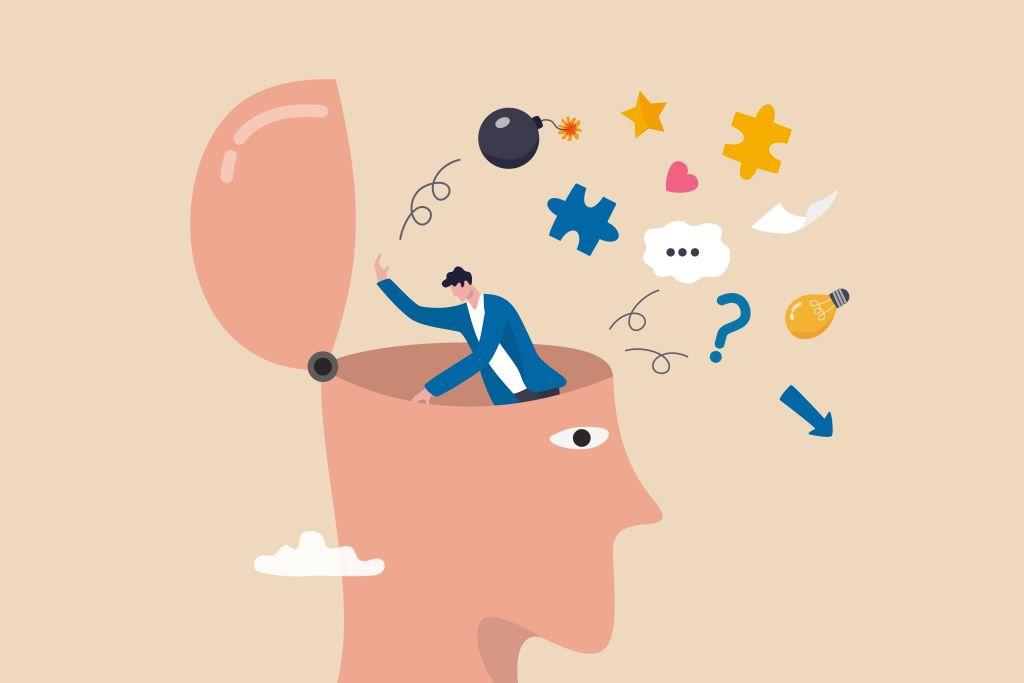Viewpoint: Five Ways Flight Crews Can Increase Energy, Reduce Risk And Enjoy Life On The Road

According to the Centers for Disease Control (CDC), 1 in 5 Americans will experience some mental health symptoms in any given year. Causes vary, but common factors can contribute to the risk of mental illness, such as the use of alcohol and drugs to help sleep and decrease anxiety and feelings of loneliness or isolation.
In a study entitled Healthcare Avoidance in Aircraft Pilots Due to Concern for Aeromedical Certificate Loss: A Survey of 3,765 Pilots, 56.1 % reported a history of healthcare avoidance behavior due to the fear of losing their aeromedical certificate. At the same time, 45.7% sought informal care and 26.8% misrepresented or withheld information on a written healthcare questionnaire for fear of losing their aeromedical certificates.
The Link to General Health
A significant factor when considering mental health is the relationship between general health and mental health. Several studies have established the role of poor mental health during the occurrence of chronic disease. Those with mental health concerns are more likely to suffer from sleep disorders, such as insomnia. It is a factor when those who do not want to seek help begin to “treat” themselves and turn to over-the-counter solutions such as pills or alcohol. Poor management of mental health can result in making poor choices, which have a far-reaching impact on physical health.
Barriers To Care
Barriers to seeking the care one needs can be a combination of many factors, such as a perceived or founded stigma and discrimination and fear of loss of income, loss of employment, medical grounding, and the cost required to obtain a medical certificate.
Coping Strategies
One area of opportunity for every aviation company is to make Mental Health Proactive Coping Strategies easily accessible and a standard part of training and retraining using coaching. Many mental health concerns can be avoided, and employees need not wait until they are at a breaking point to talk about various ways to look at issues and find solutions.
Give these a try and see what happens.
Five Practices Flight Crews Can Easily Integrate Now
We have all heard the standard answer to the question of what we can do about having energy and dealing with fatigue, including breathing, eating right, exercising and getting the proper sleep. While these are helpful suggestions, here are five game-changers.
1. Ask yourself how you are doing. I bet on any given day you probably ask people often how they are doing. But do you ever slow down and ask yourself, “Hey how am I doing today?” Awareness is the start of problem-solving. We need information.
2. Pay attention to what you are thinking. Do you really know what you think about or how often you think about it on any given day? We can think millions of thoughts a day and interestingly enough, we sometimes are not even aware of what we are telling ourselves.
3. Recognize the thought pattern. Are you jumping to conclusions? Are you convinced you know what other people think? Do you blame yourself?
4. Think with evidence: For every thought pattern you come up with, now ask yourself “Where is the evidence to support what I think?” For example, “my boss doesn’t like me.” How do you know? Did that person tell you? If the answer is no or I really don’t know, then you are filling in the blanks and that consumes your energy.
5. Hack your phone for help – Set an alarm on your phone and when it goes off make sure you have a good mantra that pops up to help you through your day. For example, we may be annoyed with someone at work because we want them to be different. That can exhaust us. Try out this mantra, “Allow others to be themselves”.
We spend so much time and effort telling ourselves stories and consuming bandwidth we could be using for creativity, rest, and relaxation. What are you doing for your mental health?
Marj Melchreit ATP, LISW-S is the founder and president of ThriveInToIt.com whose mission it is to help aviation companies raise mental health awareness for flight crews and their employees to improve retention and productivity, reduce burnout and improve customer satisfaction. Melchreit is a former airline pilot and current licensed mental health professional. She holds an ATP, type rating on an EMB-145, and flight and ground instructor credentials. She also holds a Bachelor of Science in Social Work from Bowling Green State University and a Master of Science in Social Administration from Case Western Reserve University.




